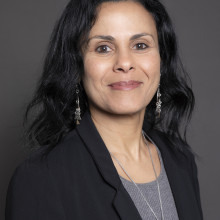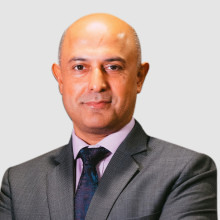
Business and Foundations Assembly
Summary
The role of business is indispensable to enhancing and accelerating sustainable urban development. However, despite their potential, businesses face numerous barriers that hinder their effective participation in the urban ecosystem. The 2030 Sustainable Development Goals (SDGs) emphasize the role of partnerships based on global solidarity, where local and global businesses are integral partners in urban sustainability. In this context, the UN-Habitat Business and Foundations Assembly seeks to leverage private sector investment as a catalyst for transformative change at the local level. The Business and Foundations Assembly will convene public and private actors to identify and seize opportunities that will allow cities and communities to come up with tangible, scalable and sustainable solutions to these global challenges.
The challenge of financing sustainable urban development is multi-faceted. Currently, most of the world’s financial resources are pooled in the private sector. Cities and communities are unable to access this private capital due to numerous issues, including weak technical and financial capacities, risk vulnerabilities and underdeveloped state regulations. To leverage private capital for sustainable urban development, a paradigm shift in regulatory frameworks, public-private partnerships (PPP) and financial incentives is crucial.
Establishing a robust regulatory framework will promote private investment by ensuring local institutions are well-coordinated, accountable and predictable. Further, establishing the necessary legal and regulatory frameworks will promote PPPs to leverage the strengths of both actors. Financial incentives, including subsidies, tax breaks and guarantees, will also play a pivotal role in attracting private sector investments. By offering financial incentives, cities can mitigate the associated risk for private actors and enable capital mobilization for initiatives that align financial returns with sustainable outcomes.
By identifying opportunities, addressing barriers and committing to actionable plans, the Business and Foundations Assembly presents a platform for public and private actors to share how to establish, build and scale these innovative systems.
It all starts locally, now and with the contribution of all stakeholders!
Linkage to WUF 12 theme
The theme of the 12th session of the World Urban Forum “It All Starts at Home” emphasizes the critical role of local action in chieving the SDGs through collaboration with the private sector. This assembly aligns closely with Dialogue 3 of WUF12, “Stronger Together” and Dialogue 4, “Financing Localization and Localizing Finance.” By addressing barriers to private sector participation, cities can enhance collaboration with the private sector enhancing their role as key players in advancing sustainable development. Further, by creating a favourable environment for private sector participation in urban development, cities can unlock financing to accelerate the achievement of the SDGs.
Objectives
- Foster dialogue between public and private sectors to identify innovative approaches for integrating private sector expertise and resources into local urban development initiatives.
- Promote collaborative efforts to design and implement scalable models that effectively channel private capital towards achieving sustainable urban growth and resilience.
Expected outcomes and impact
- Identify opportunities for increasing private sector contributions to local impact.
- Address barriers that prevent effective private sector participation in sustainable urban development.
- Develop a collective action plan to which private and public actors can commit, aimed at establishing, building and scaling private capital for local impact.
Guiding questions
- How does UN-Habitat facilitate the collaboration between local governments and private sector stakeholders to ensure that urban development projects are both sustainable and inclusive?
- What role do you believe technology, data and AI plays in overcoming barriers to private sector participation in sustainable urban development?
- What are the most pressing barriers preventing effective private sector participation in sustainable urban development, and how can these be addressed?
- What strategies have cities implemented to create a business-friendly environment that attracts and retains private sector investment in sustainable urban development projects? What are examples of innovative and transformative approaches and alliances by private sector and foundations that increased city investment and growth, while balancing the need for development of safe, resilient and sustainable cities and communities?
- What financing models have you come across that may be deployed to ensure that philanthropic funding maximizes impact in cities?










 Streaming on UN WEB TV
Streaming on UN WEB TV